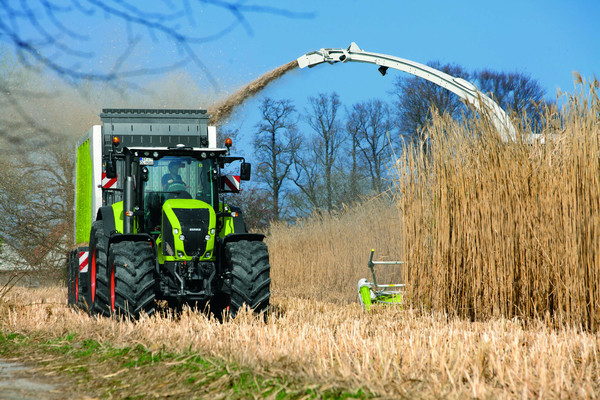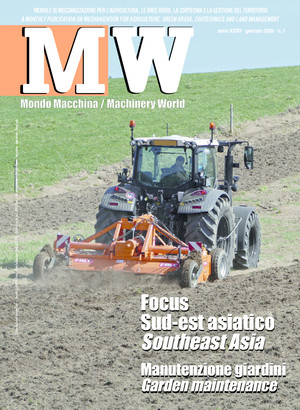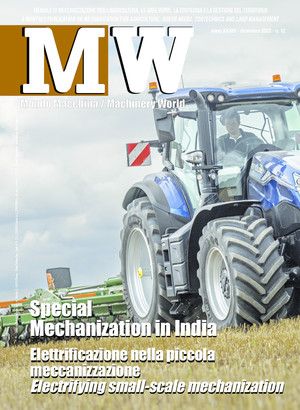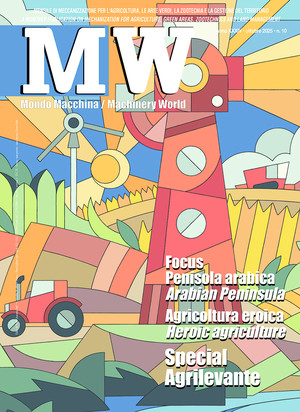
Bioenergy and the challenge of the "circular economy"
From global warming to the flow of migrants, today's the most important topics require a more and more global approach. Finding the strategies and policies to restore environmental and social balances is the challenge of the future. The decisive contribution can only come from a deep review of the economy, and the promotion of models that identify the efficient management of resources and the drastic reduction of waste and emissions of greenhouse gases as the priorities to be pursued
The complex issues can be resolved by a variety of simple initiatives, provided they adhere consistently to a comprehensive view. The need to act with this kind of approach was expressed clearly by Pope Francis in the recent “environmentalist” encyclical dedicated to the care of the shared home (i.e. the protection of Planet Earth), affirming the concept of integral ecology. “One can not speak of an environmental crisis without considering the social one” and vice versa. Therefore, to address issues of this magnitude that are so deeply interconnected, we need awareness and commitment by all, without exception. The state of things can be improved, through the choices and daily behaviour of individuals, and by establishing comprehensive strategies on the part of policy makers.
In this context, the primary sector, whose mechanization is an important element, can also play a central role in producing in a sustainable manner not only food, but also services and products with high added value.
The objective of developing multi-functionality in agriculture now offers a good opportunity for the integration of business income with initiatives that respect the resources and the territory, such as the production chains associated with biorefineries or systems that process agro-industrial biomass for bioenergy, biofuels, green chemicals and biomaterials.
At the Agrilevante Fair we will cover the main topics related to environmental and energy issues, to illustrate the level of development of technology and research in the field of bioenergy. There are many scientific fields and disciplines involved in the assessment of the impact on the economy and the environment of the various “production chains” of bio-energy and related technologies. Engineering, agricultural, chemical, biological, and economic sciences are the main ones. The ongoing debate, the committees “against”, media information all too often superficial and sensationalist, are indicators of the need to deal with energy and environmental issues more rigorously. What can research do in this context? What technologies are available to make the exploitation of biomass fully sustainable according to the development of models related to the territory and its specificities? Agrilevante will cover some of the key outstanding issues and the technology and methodology solutions investigated in the research programmes that engage the main relevant bodies (ENEA, CNR, Universities, etc.), taking stock of the latest technological innovations: the production of energy from biomass with unconventional thermodynamic cycles to increase the energy yields, the development of new processes to obtain gaseous biofuels with a higher energy value, the new devices to reduce emissions from the combustion of biomass, the importance of planning models, availability and needs evaluation tools, models for the evaluation of the impacts and scenario analyses.
The Agrilevante information activities will aim to clarify to the public the results of the studies and analyses carried out and the possible effects on the daily lives of individuals and communities. For example, on the basis of assessments made at the national level, it appears that in Italy the potential of residual biomass resulting from agriculture that can be allocated to energy conversion amounts to about thirty million tonnes per year. For the ordinary citizen, in the absence of a term of comparison, the figure may not be interesting. Is this a lot or a little biomass? The answer becomes obvious if we note that such a quantity is equivalent, in terms of energy content, to what is transported by 100 supertankers. Furthermore, the biogas sector, with about 1,300 “small” plants located in throughout Italy, records a total installed power nearing 1 GWe. Is this a valid goal? Of course, since this value corresponds to the average size of a modern nuclear power plant, but even more so when we consider that this sector employs more than 12,000 people and is an important source of income for our agriculture. The schedule of events that FederUnacoma and Itabia - Italian Biomass Association will present together includes six short seminars (lasting about an hour each) and a workshop, whose brief description follows.
The seminars
Biomethane: how farms can produce and market
an environmentally friendly fuel
In our fields there is a wealth of renewable resources to draw upon to sustainably produce biomethane, the greenest of fuels. The exploitation of a wide range of crop residues and the introduction of specific supplementary crops can be a viable income opportunity for many agricultural and livestock farms oriented towards modernization and multifunctional business.
From wood chips to the synthesis of gas for energy use, small installations and large benefits
The development of technological systems designed for the gasification of solid biomass is reaching a high level of reliability that arouses growing interest in the market segment of small-scale cogeneration adaptable to farms. The plants in question reach excellent returns only if supplied with excellent quality wood chips. It is therefore of paramount importance to plan for adequate supply levels of the biomass that meets the necessary standards.
Agriculture and Green Chemistry, state of the art and development opportunities in Puglia
The green economy is today a reality that affects countless production sectors, creating useful synergies between the industrial sector and agriculture, with a strong and necessary involvement of the world of research and politics. According to Unioncamere figures, in recent years in Italy about 20% of the most vital companies believed and invested in various ways on the “green” component of the economy, generating about three million jobs and more than one hundred billion euros of added value. The seminar will address in particular the “Made in Italy” models of circular economy in the agro-industrial sector, illustrating virtuous case studies in Italy and Puglia with their potential penetration abroad.
The exploitation of residual biomass in the production cycles of the agricultural sector
The Local Action Group GAL Terra d’Otranto with the scientific support of ENEA of Brindisi has created in Puglia the project “BE&SAVE” (PON-National Operational Plan) aimed at a multi-tier exploitation of agri-food residues with a final energy use. In this context, in order to involve small and medium enterprises of the food industry, compact and portable systems have been developed that use membrane technology for the separation of liquid waste arising from food production and for the subsequent separation of molecules with a high added value.
Miscanthus, a crop that is valuable for the restoration
of degraded soils and bioenergy production
In addition to the production of biomass for energy use, Miscanthus can also perform a significant phyto-extraction of pollutants from agricultural soils. The cultivation of miscanthus does not require particularly demanding effort and can be carried out using equipment that is normally found at farms. The “Miscanthus Project” was an experiment conducted in Abruzzo (RDP funds), which allowed the definition of an agro-energy chain model that can be replicated on a national scale (see Machinery World 7/9).
EU tenders and funds to support the development
of renewable energy in agriculture
The introduction of renewable energy sources in agriculture and the development of production systems with low environmental impact are issues of great interest for the European Union to exit the climate and economic crisis. To this end, it is possible to trigger actions by accessing specific forthcoming EU tenders under various programmes such as the MED or HORIZON 2020. The seminar will be open to national and foreign public and private local entities, to provide information and create international partnerships.
The workshop
“The biomass resource and green chemistry, promising production chains for Mediterranean Agriculture”
Through the testimony of a number of experts, this initiative is intended to express the development potential of the bio-economy in the Mediterranean, with particular reference to Puglia. Starting with a description of the biomass resource, an overview will be provided for its many uses in relation to the specificities of local contexts, to its availability and to good practices in place. The fields of application, all closely linked to agriculture, regard the textile (fibres from hemp), green chemistry (products from camelina, brassicas, linen, etc.), bioenergy (agripellets, biogas and biomethane, etc.), biorefineries. The contributions will come from the worlds of research, industry and trade associations concerned, including Legambiente.








